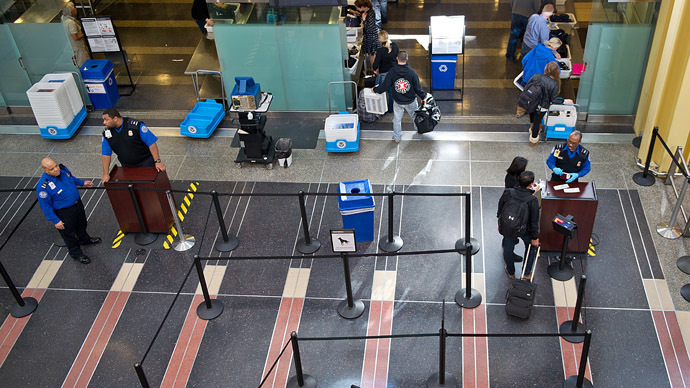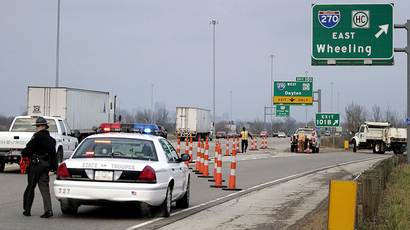TSA accessing government and private databases to pre-screen everyone

Jetsetters, take note: According to a front page article in Tuesday’s edition of the New York Times, the United States Transportation Security Administration (TSA) is learning much more about airline passengers than just their meal preference.
It shouldn’t come as a surprise to many, but Times reporter Susan Stellin revealed this week that the TSA has access to a trove of huge databases — both federally and privately run — which it uses to keep track of information about almost anyone traveling through American airspace.
Tax identification numbers, old travel plans, property records and even physical characteristics are contained in these databases, Stellin wrote, which is then shared among government agencies and often combined with other information on record elsewhere, including intelligence maintained by the likes of debt collectors and other private agencies whose profits depend on digging up personal information.
This mass data-mining is being used by Department of Homeland Security agencies like the TSA as a tool to monitor suspected terrorists and other criminals, and could assist in an agency-wide goal of trimming time off of the notoriously lengthy security pat-downs currently in place at airports across the country. But while representatives from the TSA touted these efforts to the Times as necessary implements in ensuring utmost safety, privacy advocates are asking for change.
According to Stellin, the TSA is now not just conducting routine background and criminal checks on airline ticket holders, but also relying on these massive databases to identify any potential red flags. With computers — not humans — calling the shots, though, it could change the face of travel to one where everyone and everything is suspect, until the system ensures them otherwise.
“I think the best way to look at it is as a pre-crime assessment every time you fly,” Identity Project consultant Edward Hasbrouck told the Times. “The default will be the highest, most intrusive level of search, and anything less will be conditioned on providing some additional information in some fashion.”
Hasbrouck has previously sued the federal government in an attempt to learn about the information that agencies like the TSA compile on American travelers, and has long insisted that more than meets the eye is being collected.
Earlier this month, Hasbrouck noted on the Identity Project website that leaked security documents released to the media by former intelligence contractor Edward Snowden revealed that the US government is accumulating information from airline reservation systems and social media sites to scoop up information on travelers, both domestically and abroad.
Speaking to SF Weekly in 2010, Hasbrouck equated the Automated Targeting System started in 2006 by another DHS agency, Customs and Border Protection, as a “guilty-by-association machine” that can make any traveler appear suspicious since it relies on information compiled in a “database of detailed profiles of every person who'd crossed a US border.”
Even then, Hasbrouck said the government had access to personalized dossiers that contained more details on travelers than one might assume. "I've seen in one person's file that showed not merely who they were traveling with, but ... whether they asked for one bed or two in a hotel room, because their hotel was booked through the same reservation as their flight," Hasbrouck told the SF Weekly. "I don't think it's appropriate for anyone to be looking behind your hotel room and seeing who's sleeping with whom."
According to this week’s Times report more than three years later, the information being collected by the TSA is only expanding, and other government agencies are able to get their hands on it as well.
“For instance,” Stellin wrote, “an update about the TSA’s Transportation Security Enforcement Record System, which contains information about travelers accused of ‘violations or potential violations’ of security regulations, warns that the records may be shared with ‘a debt collection agency for the purpose of debt collection.’”
“A recent privacy notice about PreCheck notes that fingerprints submitted by people who apply for the program will be used by the FBI to check its unsolved crimes database,” she said of the new expedited screening process rolled out by the TSA at airports across the US earlier this month.
On the Identity Project website, Hasbrouck wrote that that same system authorizes the TSA to “create a new permanent file with everything from your fingerprints to ‘any other information provided . . . by government agencies or other entities.”
Couple that knowledge with leaked Snowden documents suggesting the NSA is independently accessing passenger records held by private airlines — then handing them over to the DHS — and the “pre-crime assessment” tools described by Hasbrouck are that much more powerful.














